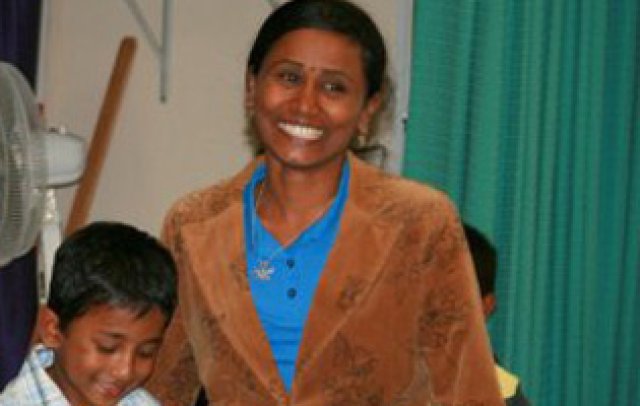
Over the past few months, refugees who were once deemed by ASIO to be a threat to national security have been gradually released from indefinite detention. It appears that one of Australia's most internationally criticised immigration detention policies is being quietly abandoned.
The most high-profile victims of this policy, Ranjini and her son, who was born in detention and had never known a day of freedom, were released on November 13.
Ranjini fled Sri Lanka as the civil war drew to a bloody close in 2009. She arrived by boat on Christmas Island in May 2010, with her two young sons, Piralkumaran and Kathiraman.
She claimed protection as a refugee and was found to be a “widowed single mother … at risk of continued violence”. She was not judged to be a threat to national security. She was granted a refugee visa and released from detention in March 2011. Ranjini settled in Melbourne and married.
But in May 2012, the immigration department told Ranjini she had been given an adverse security assessment. She and her sons were immediately taken into indefinite detention. Two days later, Ranjini discovered she was pregnant.
Ranjini was never told why she was being held — only that she had been assessed as a threat to national security. She could not challenge her detention and when she was released she was not told why she was now free to go.
At the height of the policy, in late-2013, about 55 people were held in indefinite detention. Most were Tamils accused of having links, however tenuous, to the Liberation Tigers of Tamil Eelam (LTTE). Some have been held for up to six years, without ever being charged or brought before a court. Between six and 10 remain in detention.
The LTTE has never committed an act of violence on Australian soil and was never proscribed as a terrorist organisation by the Australian government.
Despite evidence that the Sri Lankan government committed war crimes during the civil war, the Australian government has worked closely with the regime, including security collaboration to prevent Tamils fleeing the country after the conflict ended.
Trevor Grant of the Tamil Refugee Council said: “This lays bare the cynical, cavalier use of our national security laws for political purposes. It was part of a political stunt designed to scare off Tamil asylum-seekers.”
Human rights advocate and barrister Julian Burnside said the system under which the refugees were held was “insane”.
“In one case I challenged the ASIO negative security check in the Federal Court. ASIO's argument to the court was that the judge cannot know why they made their security assessment because that cannot be released and therefore the judge cannot find the security assessment to be wrong. The judge had to agree.
“Now, I understand the importance of national security, but at some point we have to recognise that something in this system has gone grossly wrong. At the very least changes need to be made so that anyone who has a negative security check has the right to know the basis of that security assessment,” he said.
In 2013, the UN Human Rights Committee found Australia's policy of indefinite detention of recognised refugees on security grounds amounted to cruel, inhuman and degrading treatment.
The Committee said the refugees' detention was “arbitrary and violated Article 9 of the International Covenant on Civil and Political Rights, which states that no one shall be subjected to arbitrary arrest or detention.
“The combination of the arbitrary character of [their] detention, its protracted and/or indefinite duration, the refusal to provide information and procedural rights to [them] and the difficult conditions of detention are cumulatively inflicting serious psychological harm upon them.”
In 2012, the Labor government attempted to assuage criticism of the policy by appointing former federal court judge Margaret Stone to the new position of Independent Reviewer of Adverse Security Assessments.
Of 24 adverse assessments she reviewed, six were found to be correct; six were found to be historical and no longer appropriate; seven were withdrawn based on new information; and three were found to have never been appropriate. In two cases, ASIO's process had been so flawed Stone was unable to form an opinion and ASIO withdrew the assessments.
Ben Saul, professor of international law at the University of Sydney, who took the case to the UN said: “The normalisation of such an extreme measure in turn blunts our resistance to other kinds of violations. It is a slippery slope. Treating people terribly is the new normal, and barely registers in the public conscience any more.”
Until ASIO releases details of its security assessments, we have no way of knowing whether its adverse assessments were ever justified. Each time one of these people is quietly released from detention, it begs the question: did they really need to be locked up for all of those years in the first place?
Like the article? Subscribe to Green Left now! You can also like us on Facebook and follow us on Twitter.